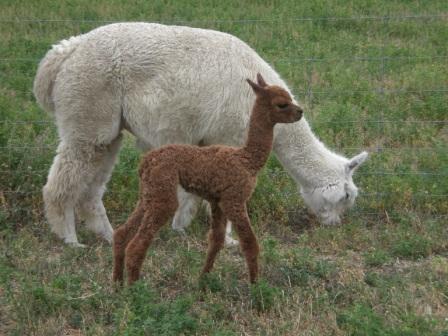ALPACAS - A NEW BUYERS GUIDE
This information is designed to help newcomers to the alpaca industry make good purchase decisions for their breeding program. It points out some of the pitfalls whilst presuming a basic knowledge of alpacas, microns and showing. If you wish further information or to discuss, please do not hesitate to contact us.
Research, Research, Research
The first recommendation we would make is do your research - and lots of it!!! At the end of the day your purchases are on you, so select wisely to get the best results.
Micron stats
Be aware that these can be manipulated by removing guard hair from a sample prior to testing. If you have any doubts, request taking a mid-side sample and get it tested yourself.
Tests can be done on different machines and these can yield different results so know what type of machine a sample was tested on - compare apples with apples.
Even different testing companies using the same type of machine can have varied results from the way they prepare the sample and how the machine is set-up.
Individual machines can vary over time and need to be re-calibrated from time to time.
Know the age of the animal at the time of testing as microns tend to increase over time. The younger the animal, the lower its micron will tend to be.
Showing and show results
Always beware of purchasing an animal that hasn't been shown - there is usually a reason! That reason may not impact on an animal's breeding potential but it is best to be aware.
Always check show results. How many in the class? How many in the championship? What was the quality of the opposition? What scores were on the fleece scorecard?
Some shows are naturally stronger than others as are colours and sometimes age classes. Make allowances when assessing. We have all had cheap wins in a class/championship but it doesn't make for a better (or worse) animal. Check the whole career and the failings as well as the successes to make a rounded decision.
Age
Always try and make allowances for age when making a purchase. What is your breeding plan/goal and how does this alpaca fit? There will always be a lot more unknowns/risk with a younger animal but sometimes with risk comes reward.
Genetics
Our opinion is that most genetics are pretty good these days, although obviously there are degrees. There may be elite animals but not so much in terms of genetics. So paying 'overs' for an ordinary animal just because it may have 'good' genetics doesn't make a lot of sense to us.
Health
Always do your homework on the health of an animal you may be looking to purchase and that of its family. Ask the questions in regard to its health history (worms, staggers, facial eczema etc) and any potential breeding/birthing problems. Check out the family history.
Value
Unless you have an unlimited budget, aim for value when purchasing. That does not mean cheap. Value could be a $1,000 purchase or a $10,000 purchase (or more) depending on what qualities and potential an alpaca offers.



